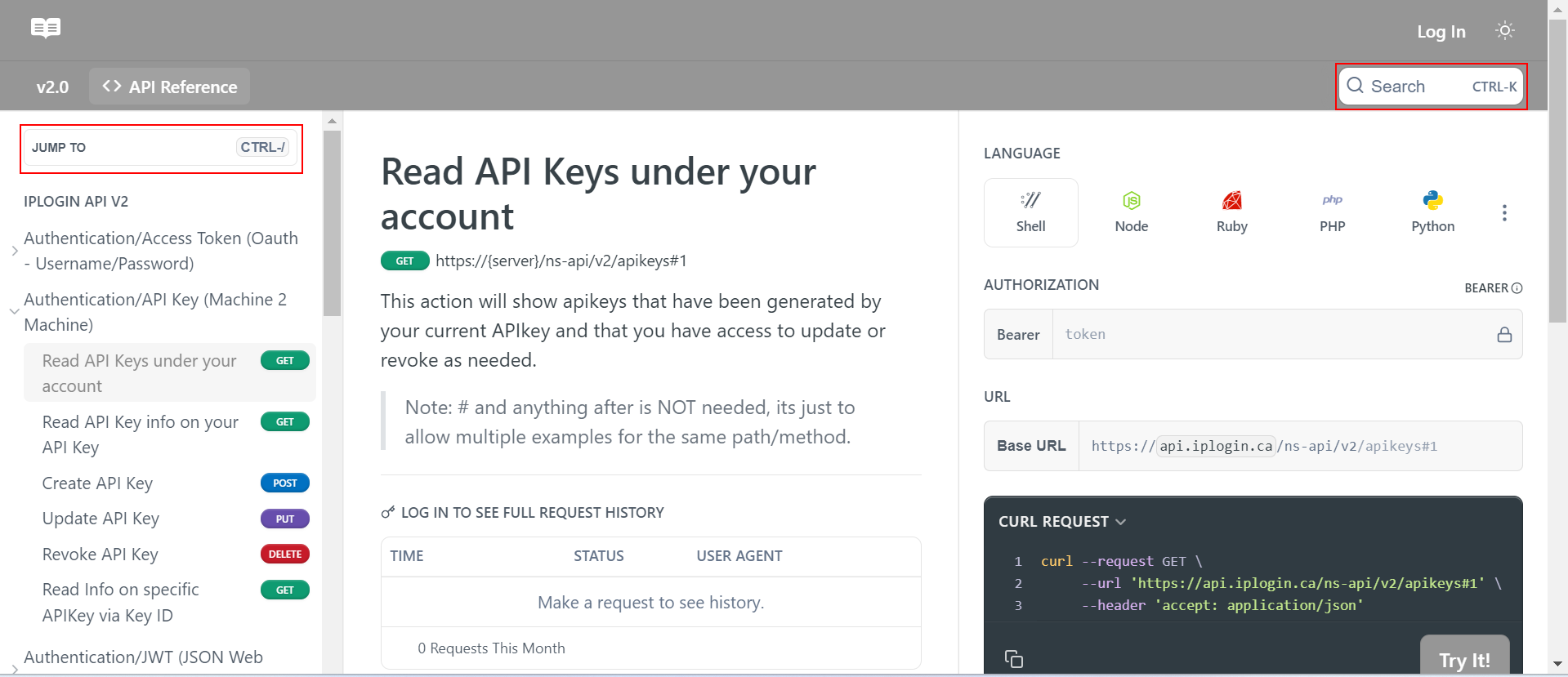APIs
Table of Contents
Please review the API Reference. You Require API Keys to use this feature. Please get in touch with Support to get Access. Billable Support Feature API Overview API Reference Authentication Overview OAuth2 Based Access and Refresh Tokens JWT Tokens (JSON Web Tokens) API Keys Helpful resources:Please review the API Reference.
You Require API Keys to use this feature. Please get in touch with Support to get Access.
Billable Support Feature
The API is an included feature of the solution. If required, Professional Services are available based on an accepted quote and availability of resources.
API Overview
The API (application interface programming) integrates development strategies into our software. Provisioning, feature management, call control - the API is a powerful tool for understanding and optimizing our solution.
- Improvements made in the existing PHP API package:
- The Full version of the API has a dramatically new “look and feel.”
- New ”interface” for all reads and writes following OpenAPI standards
- Maximize reuse of existing code to allow for backwards compatibility and accelerate adoption
- Identify Areas for targeted improvements
- Domain Creation (create domain user, dial plan, dial rule)
- User Creation (create default Answer rules, TTS name)
- Answer rules (complete redesign)
- Phone numbers (fork from Dial Rules, simplify response, clean responder name
- reworked dial rules/DID table to allow for better/faster searching by domain
- New authentication method for simplified server2sever requests (ApiKeys)
- Improve Event Subscriptions (add geo support and new Billing Data option)
- Introduction of Synchronous options for some creates to get 200 ok with data instead of 202
- Completely new documentation tool with all APIs documented.
API Reference
The API reference is a resource that enables you to review the functionality. There are two primary ways to search: the “Search” field at the top of the browser or via a filter in the “Jump To” menu under the version number on the top left. This is the link to the API Reference.

Authentication Overview
The API supports three types of authentication methods, each with its own set of benefits and considerations. These methods are detailed in the following guides:
OAuth2 Based Access and Refresh Tokens
- Legacy format is also supported by v1 applications.
- Timed tokens are suitable for various application types and scopes.
- Requires a username and password to be granted an access token.
JWT Tokens (JSON Web Tokens)
- Timed tokens with parseable token information.
- Non-session-based, placing a lighter load on the system.
- Particularly well-suited for end-user access to web applications.
API Keys
- Suitable for server-to-server applications where the API key can remain secure.
- Ideal for applications requiring a minimum of office manager access.
- No username and password are needed for authentication.
- It can be restricted using read-only options and IP restrictions if required.
- Usage is tracked and monitored.
Each authentication method serves different use cases, providing flexibility and security based on your application's requirements.
Helpful resources: